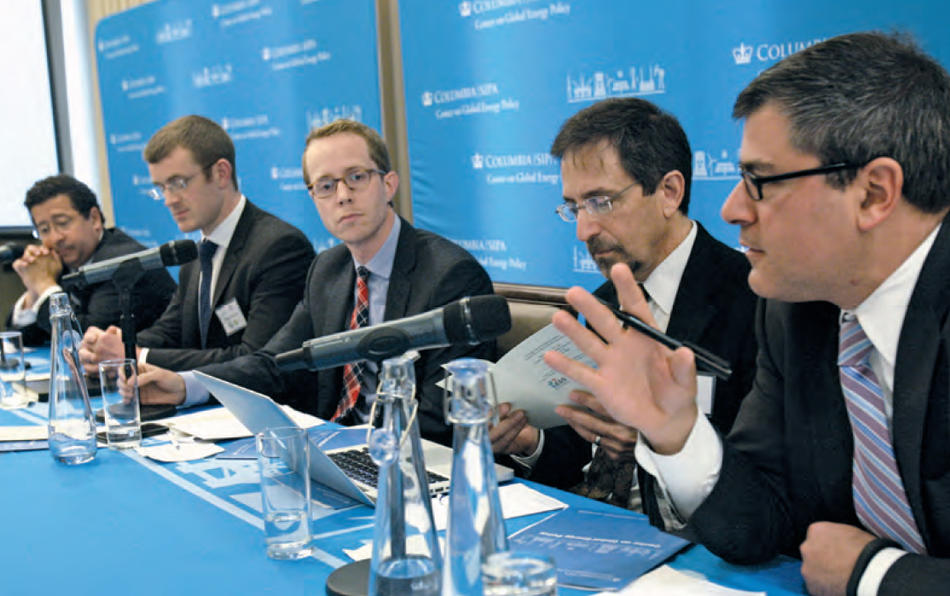The energy issues that confront policymakers today have never been more complex: Should the US export natural gas? What would be the geopolitical ramifications of importing less oil? Will Asian and African countries develop closer ties with the Middle East as their energy needs increase? How much money should be invested in wind power, solar power, and biofuels?
A new research center at the School of International and Public Affairs was launched this spring to address questions like these. The Center on Global Energy Policy, directed by former White House energy adviser Jason Bordoff, was inaugurated April 24 at a conference whose list of attendees provides a glimpse into the kind of multidisciplinary research the center will support: economists, financial analysts, engineers, climatologists, political scientists, national-security experts, elected officials, and industry leaders all convened to discuss policy solutions to the world’s most pressing energy challenges.
“A few decades from now I think we are going to look back at this time as a really transformational moment in our energy history,” said Bordoff in his introductory remarks. “New technologies are unlocking hydrocarbon resources across North America, and most likely soon elsewhere around the world. Clean-energy technologies are making rapid advancements. Climate change impacts are being felt with more frequency. All of these things are having profound economic, geopolitical, national-security, and environmental impacts. Energy policy needs to keep pace with how quickly the energy world is changing.”
The center’s primary objective, Bordoff says, is to produce “independent, balanced, data-driven analysis” that will help policymakers make well-informed decisions about energy issues.
Bordoff knows firsthand the needs of politicians and their staffers. Before coming to Columbia to create the Center on Global Energy Policy in January, he spent four years at the White House, most recently serving as special assistant to President Obama and senior director for energy and climate change on the staff of the National Security Council.
“In Washington, there are times when a policy issue will hit your desk and you will need to brief your bosses on it by the end of the day,” he says. “You don’t have time to do deep analysis. And it can be surprisingly difficult to find trustworthy information — you’ll find one study funded by one industry, one study by another industry. We hope to be an objective, trusted source of analysis.”
The new center will produce interdisciplinary research projects by Columbia faculty as well as by outside experts. A new fellowship program will bring energy-policy experts to Columbia to research and write, lead study groups with students, and give public lectures. The center recently announced its first full-time fellow: David Sandalow, who until recently served as the acting US under secretary of energy and the assistant secretary for policy and international affairs, will study US-China energy relations, advanced-vehicle technology, and clean-energy finance.
The April conference was attended by several high-profile guests who threw their support behind the center, including New York City mayor Michael Bloomberg, national-security adviser Tom Donilon, deputy energy secretary Daniel Poneman, the US State Department’s special envoy and coordinator for international energy affairs Carlos Pascual, and author Daniel Yergin.
“The challenges that we face are clear,” said Poneman at the conference. “We must transform our energy economy from one that is dependent on carbon to one that has a much more diversified, low-carbon future. We’ll need the smartest scientists, the brightest engineers, and the most farsighted politicians to get this done, and clearly with the founding of this center at this university, we’ve got a great start.”



